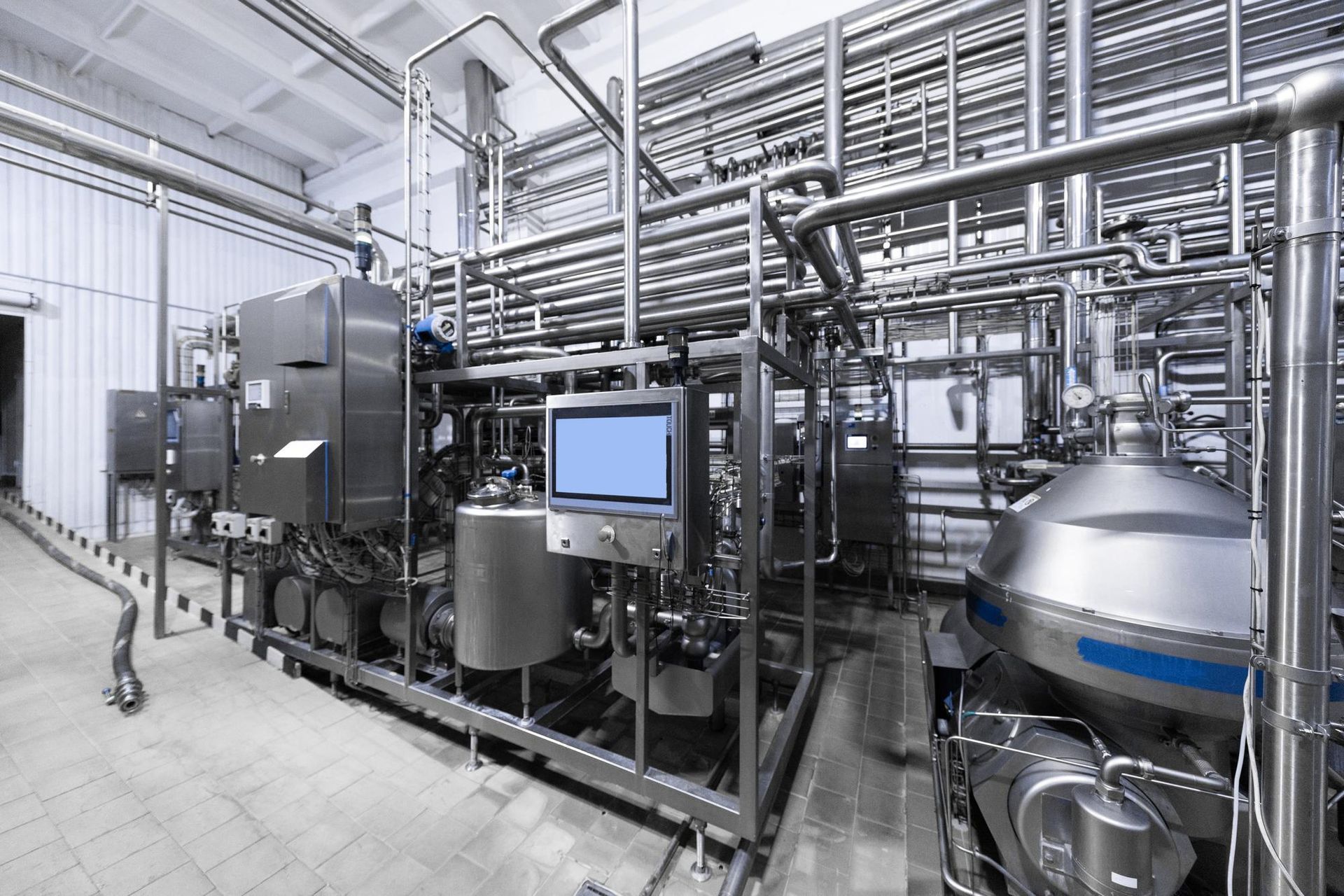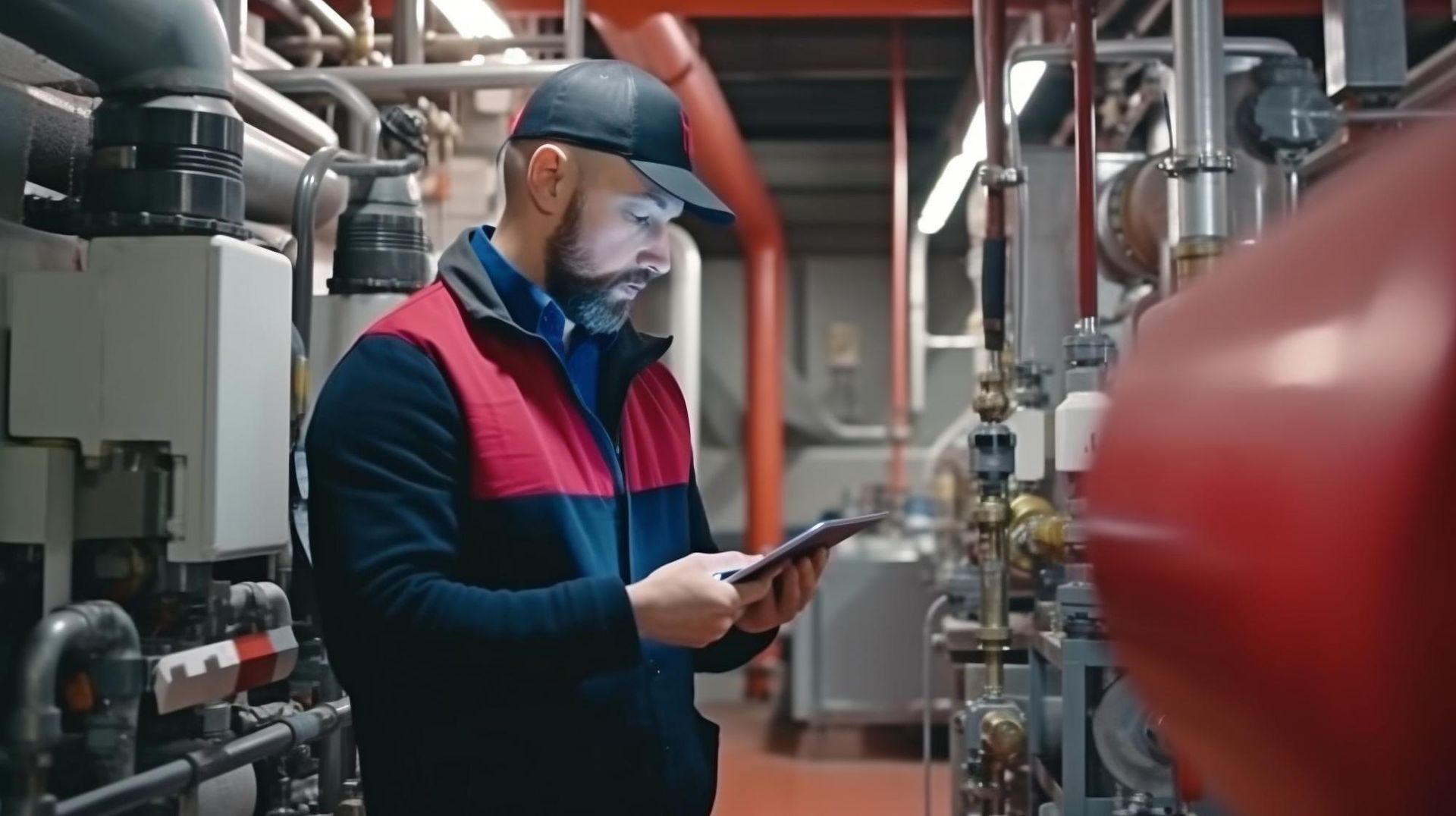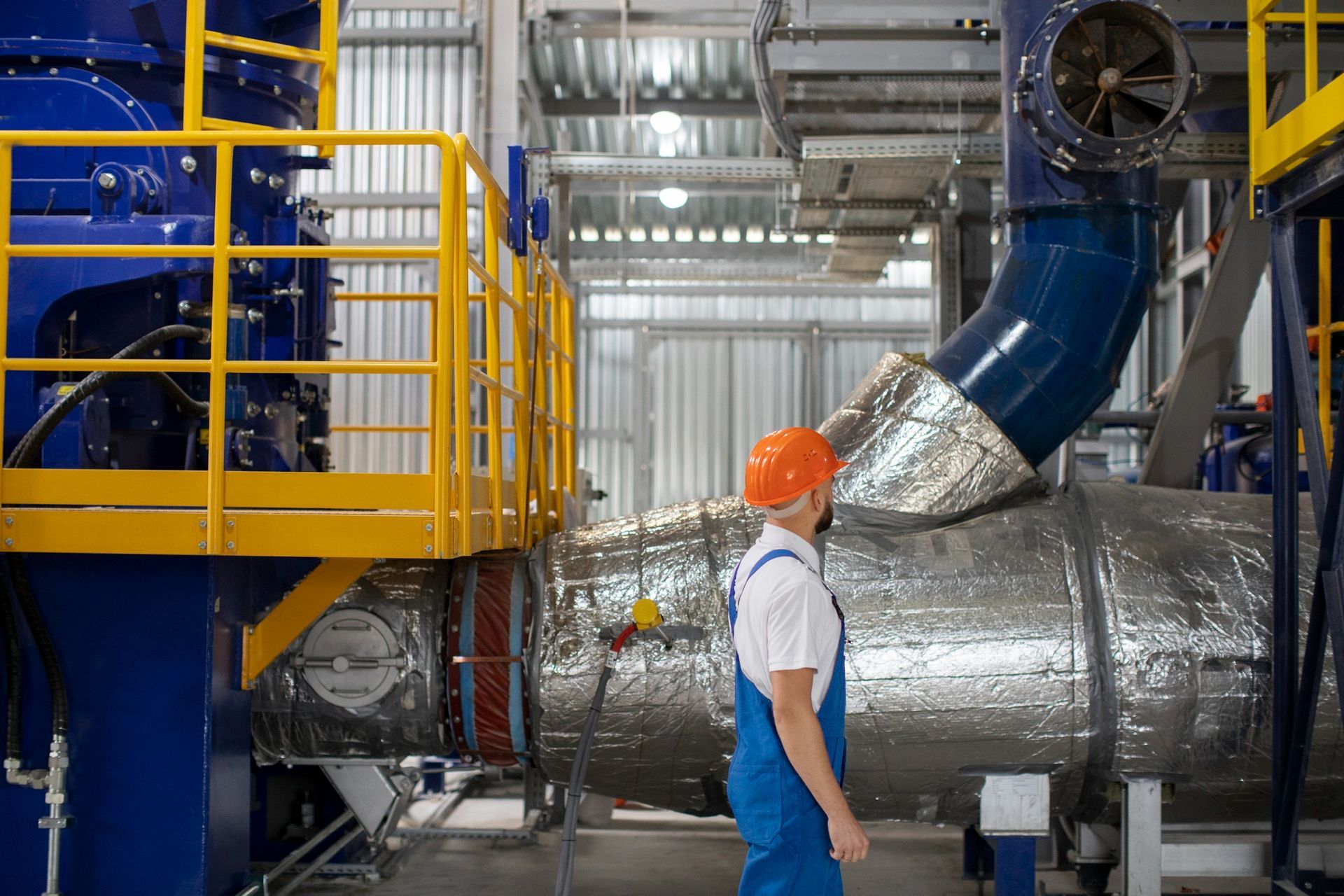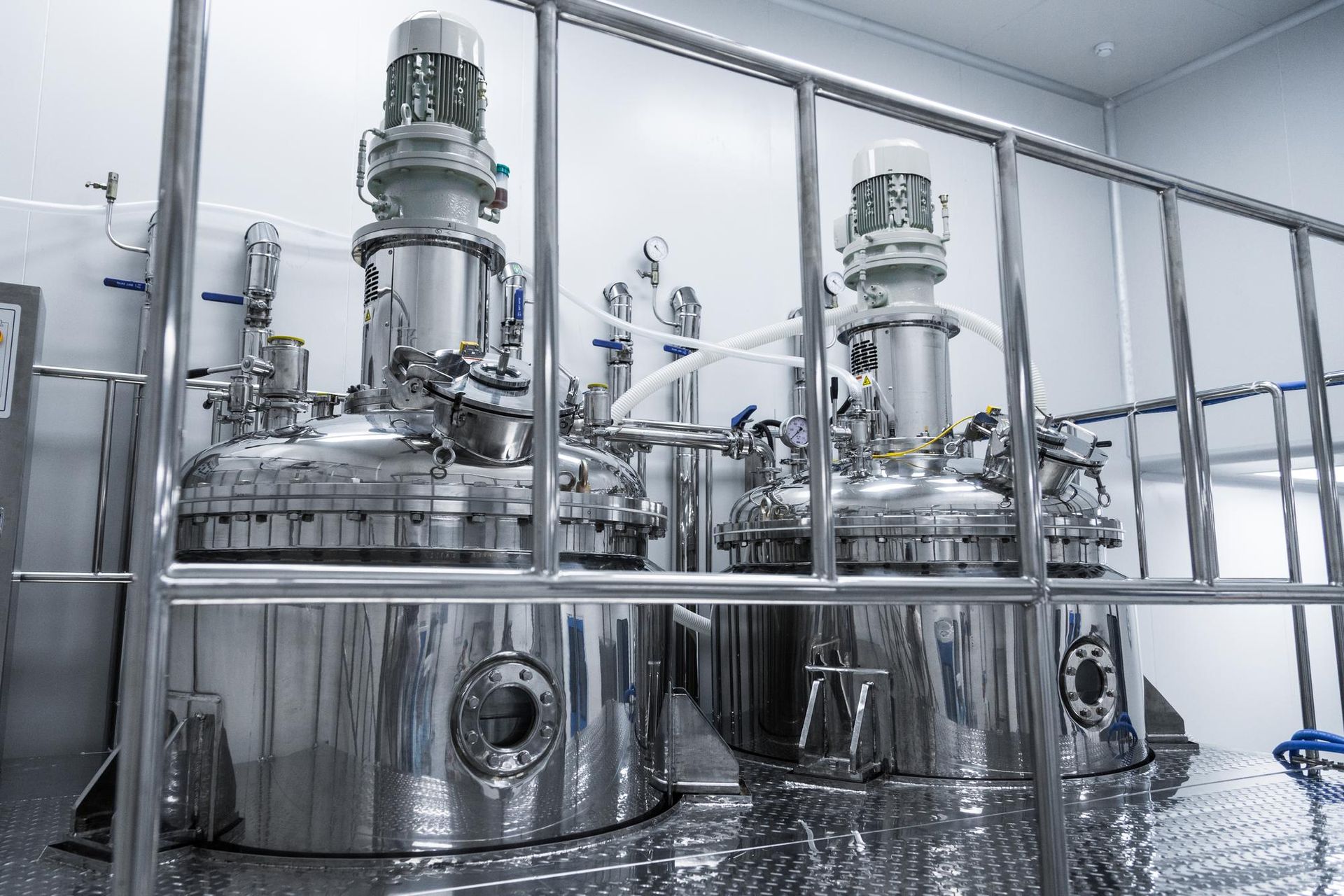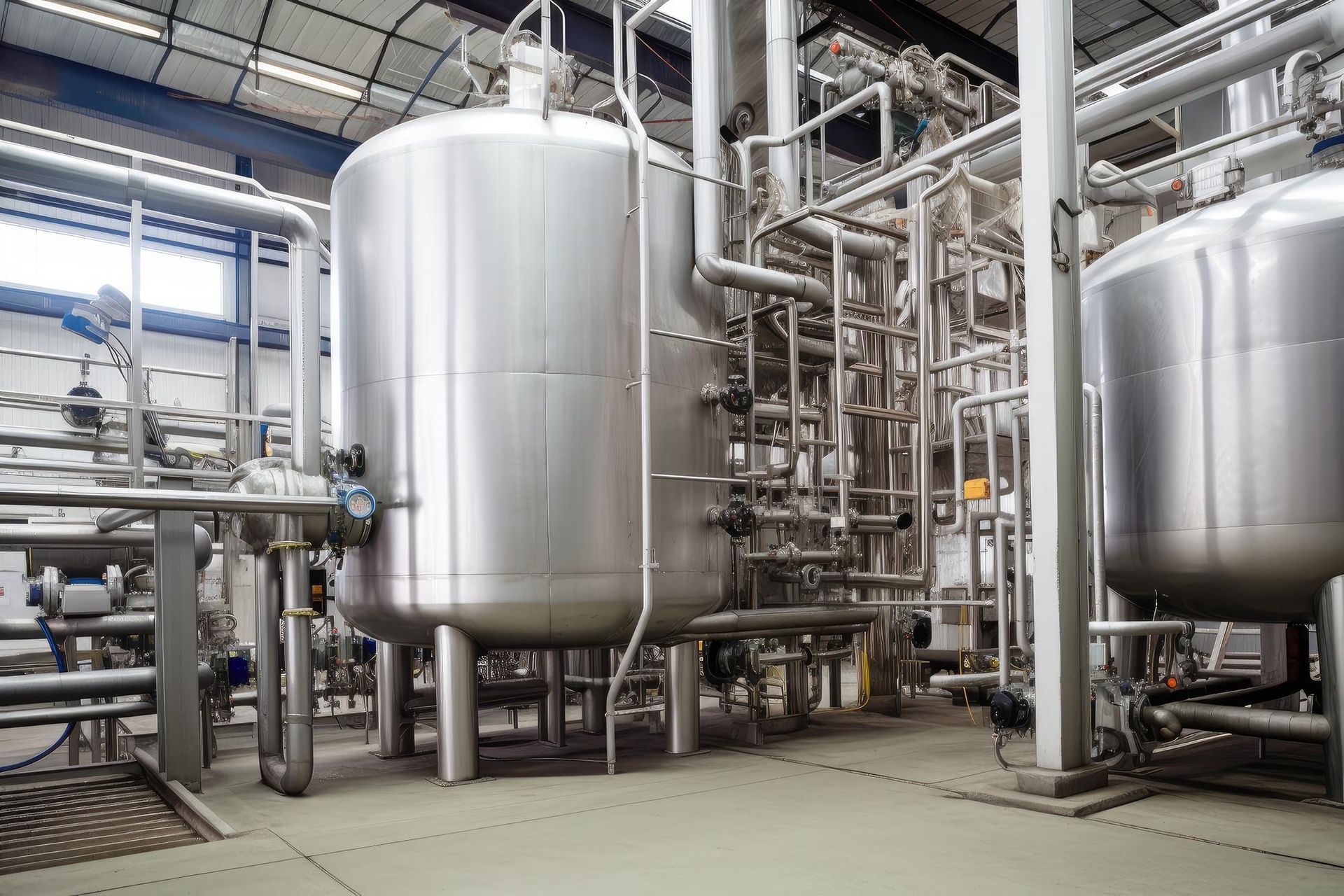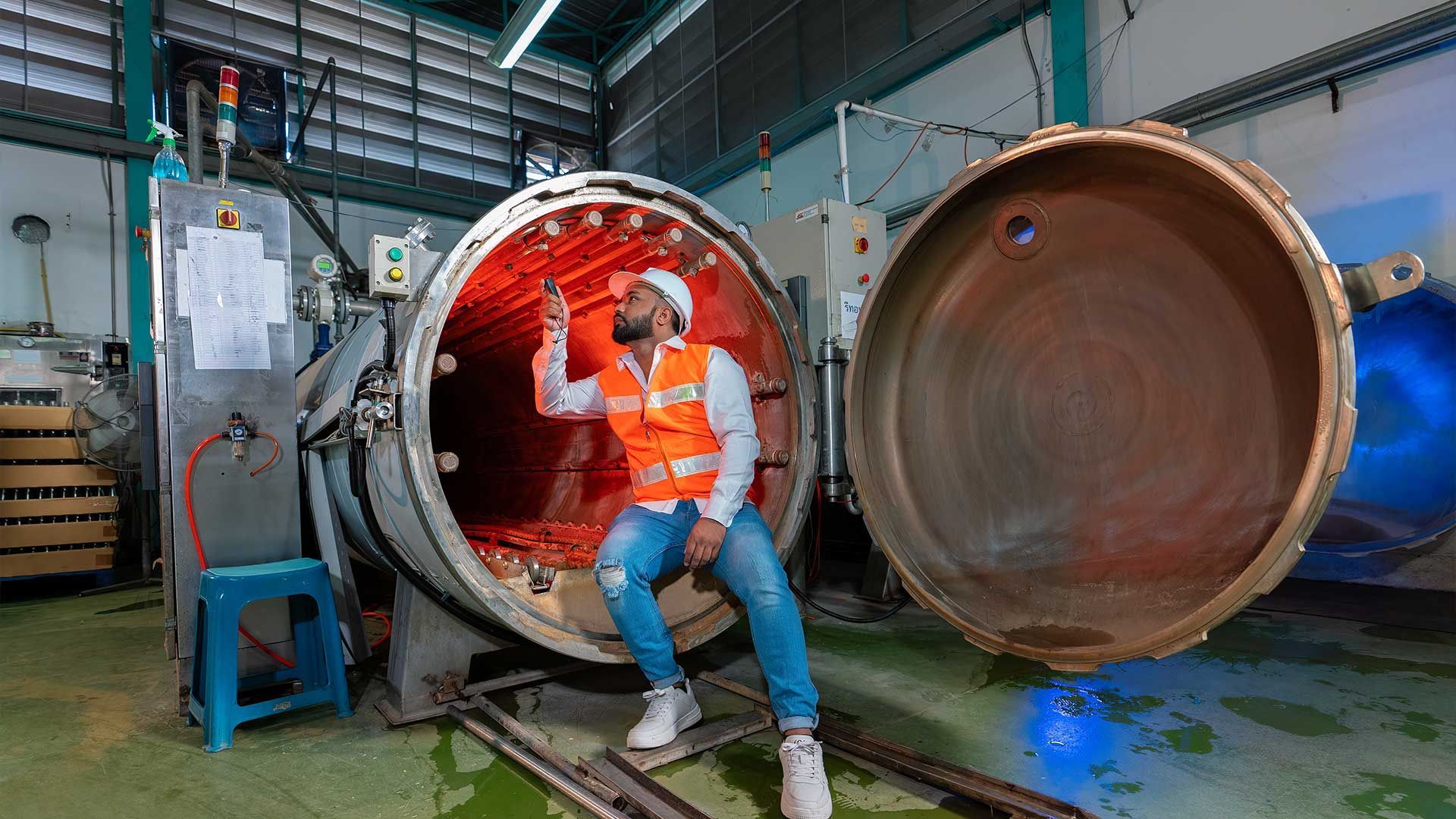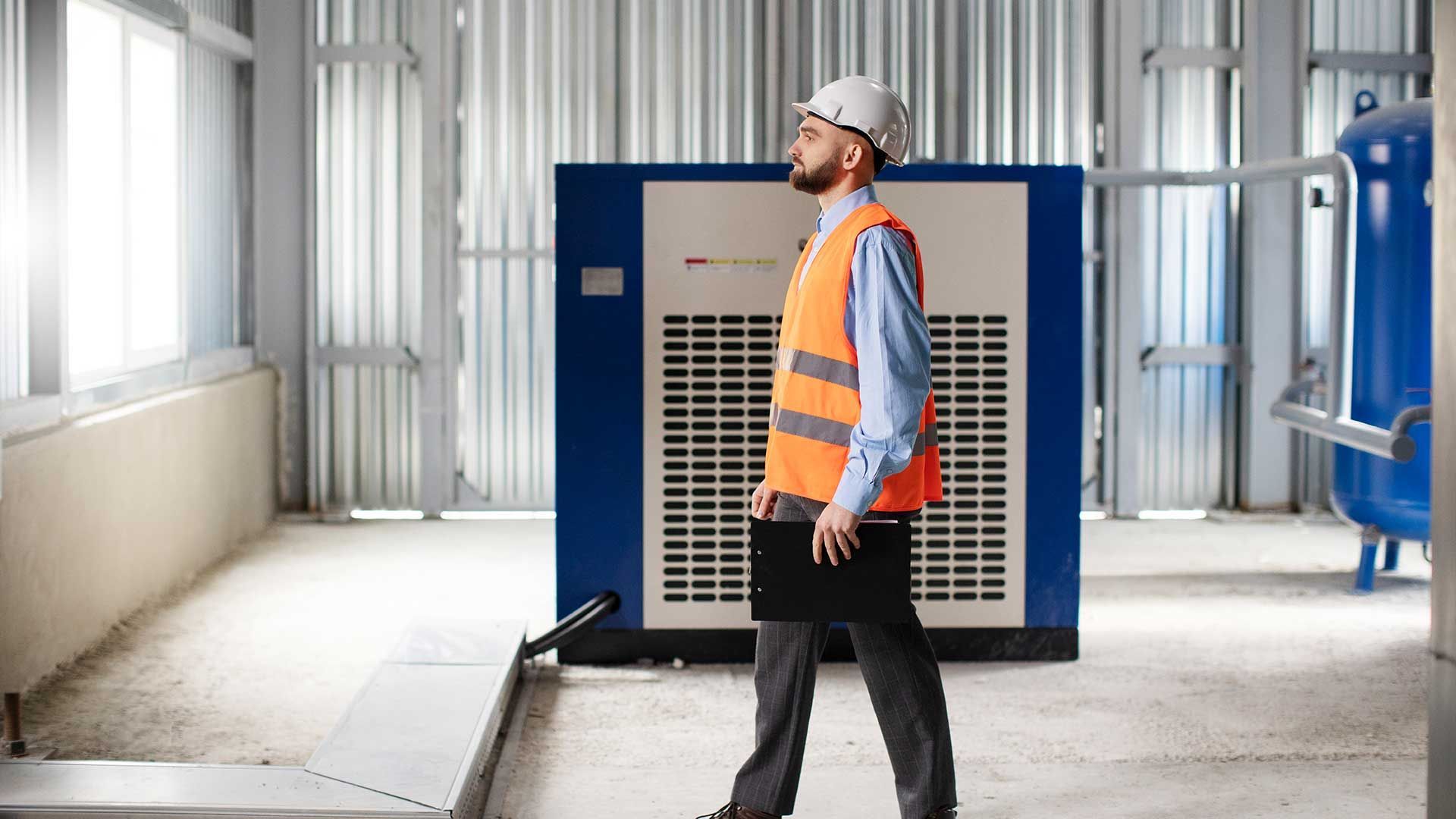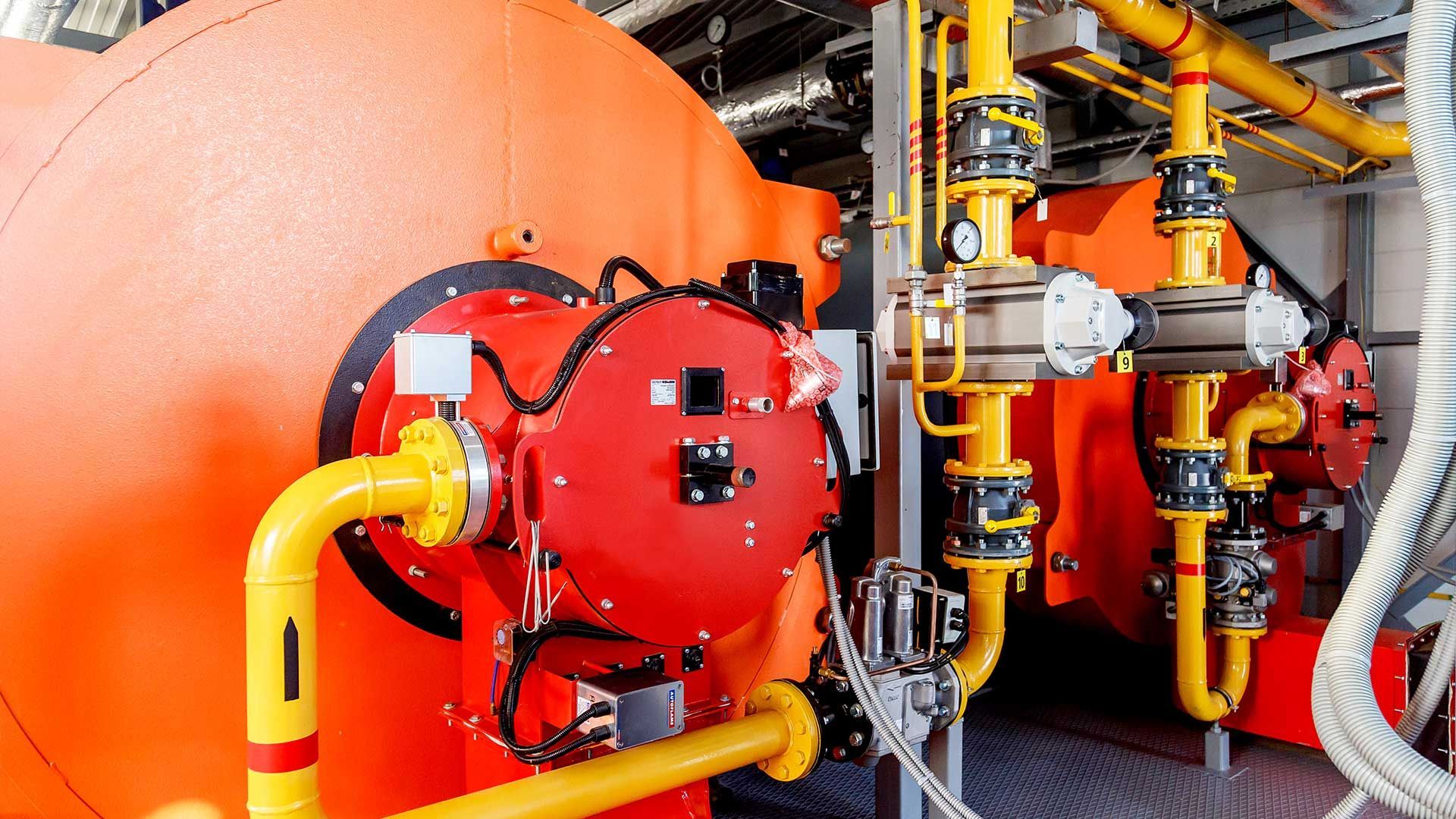CALL US TODAY! (813) 469-7733
CALL US TODAY! (813) 469-7733
The Complete Guide to Industrial Boiler Service: Maintenance, Repairs, and More
Understanding Industrial Boilers
Before delving into the intricacies of industrial boiler service, it's essential to grasp the fundamentals of what industrial boilers are and why they are integral to various industrial processes.
Industrial boilers are powerful, heat-producing machines designed to generate steam or hot water for a multitude of industrial applications. They serve as the driving force behind processes such as power generation, heating, and even sterilization in industries ranging from manufacturing to healthcare.
These machines come in various types, including fire-tube boilers, water-tube boilers, and others, each tailored to specific industrial needs. Fire-tube boilers, for instance, have a shell filled with water and
combustion gases inside tubes, while water-tube boilers reverse this design.
Industrial boilers are the unsung heroes that ensure factories keep running, hospitals remain warm, and countless other processes function seamlessly. However, like all equipment, they require care and maintenance to continue operating efficiently and safely. Industrial boiler service is the cornerstone of this care, making sure these workhorses remain reliable and cost-effective assets for industries worldwide.
The Importance of Regular Maintenance
Maintenance is the cornerstone of ensuring the longevity and efficient operation of industrial boilers. Neglecting regular maintenance can lead to a host of problems that not only impact the boiler's performance but can also pose safety risks.
Regular maintenance of industrial boilers serves several critical purposes:
Efficiency:
Over time, boilers can accumulate soot, scale, and deposits that reduce their efficiency. Regular cleaning and maintenance help remove these obstructions, ensuring boilers operate at peak efficiency, which is crucial for cost-effective industrial operations.
Safety: Safety is paramount in industrial settings. Neglected boilers may develop issues that pose safety risks, including leaks or pressure problems. Routine maintenance includes safety checks and ensures that potential hazards are addressed promptly.
Longevity:
Industrial boilers are significant investments. Proper maintenance extends their lifespan, saving industries from the costly need to replace boilers prematurely.
Cost Savings: Well-maintained boilers consume less fuel and are less prone to breakdowns. This results in cost savings for industrial facilities, making maintenance a financially prudent choice.
In summary, the importance of regular industrial boiler service cannot be overstated. It ensures efficiency, safety, longevity, and cost savings, all of which are critical factors in the smooth operation of industrial processes. In the sections that follow, we'll dive deeper into the various components of boiler maintenance and why they matter.
Components of Industrial Boiler Maintenance
Maintaining an industrial boiler involves a series of essential tasks, each contributing to the overall health and performance of the boiler system. Here are the key components of industrial boiler maintenance:
Inspections and Checks: Routine inspections are the foundation of boiler maintenance. Trained technicians examine the boiler's components, including the pressure vessel, burner, controls, and safety devices, to identify any issues or signs of wear and tear.
Cleaning Procedures: Boiler tubes, flues, and surfaces can accumulate deposits over time, reducing heat transfer efficiency. Regular cleaning procedures, such as descaling and soot blowing, remove these deposits, ensuring optimal heat transfer and combustion efficiency.
Lubrication and Parts Replacement: Proper lubrication of moving parts and the timely replacement of worn or damaged components are vital for preventing breakdowns and ensuring the smooth operation of the boiler.
Water Treatment: Boiler water quality plays a crucial role in preventing corrosion and scale buildup. Water treatment programs are implemented to maintain the quality of the water used in the boiler system.
Combustion Analysis: Regular combustion analysis helps optimize fuel efficiency and reduce emissions. Technicians analyze combustion gases to ensure the right air-to-fuel ratio, promoting clean and efficient burning.
Control System Calibration: Boiler control systems require periodic calibration to maintain precise control over temperature, pressure, and other parameters. This ensures the boiler operates within safe and efficient limits.
Safety Testing:
Safety devices such as pressure relief valves, flame safeguards, and alarms are tested to ensure they function correctly in case of emergencies.
By addressing these components as part of industrial boiler maintenance, facilities can ensure that their boilers operate reliably, efficiently, and safely. Neglecting any of these aspects can lead to decreased performance, increased operating costs, and potential safety hazards. In the subsequent sections, we will explore the difference between preventative and reactive maintenance, emphasizing the importance of proactive
care for industrial boilers.
Preventative vs. Reactive Maintenance
When it comes to industrial boiler service, there are two primary approaches: preventative maintenance and reactive maintenance. Understanding the key differences between these approaches is essential for maintaining the efficiency and reliability of industrial boilers.
Preventative Maintenance:
- Preventative maintenance is a proactive approach aimed at preventing issues before they occur.
- It involves regular inspections, cleaning, lubrication, and component replacement as scheduled.
- The goal is to identify and address potential problems early, minimizing downtime and costly repairs.
- Preventative maintenance is cost-effective in the long run, as it helps extend the lifespan of industrial boilers and reduces unexpected breakdowns.
Reactive Maintenance:
- Reactive maintenance, also known as "breakdown maintenance," involves addressing issues only when they occur.
- It often results in unexpected downtime, costly emergency repairs, and production disruptions.
- Reactive maintenance is less cost-effective because it neglects the opportunity to identify and address problems before they escalate.
- While suitable for certain situations, such as minor repairs, it can be expensive and disruptive when applied to industrial boilers.
In summary, preventative maintenance is the preferred approach for industrial boiler service. It helps ensure the continuous and efficient operation of boilers, reduces downtime, and saves costs in the long term. Reactive maintenance should be reserved for situations where immediate repairs are necessary, but it should not replace a comprehensive preventative maintenance plan. In the subsequent sections, we will delve into common boiler issues and repairs, shedding light on the types of problems that can be mitigated through proactive maintenance.
Common Boiler Issues and Repairs
Industrial boilers, like any mechanical system, are susceptible to various issues that can disrupt operations and compromise safety. Understanding these common boiler problems and the required repairs is essential for effective industrial boiler service. Here are some typical boiler issues and their respective repair processes:
Leaking: Boiler leaks can occur due to damaged seals, cracked tubes, or corrosion. Repairs may involve sealing leaks, replacing damaged components, or addressing corrosion through proper maintenance and water treatment.
Pressure Problems: Fluctuations in boiler pressure can lead to inefficiencies and safety concerns. Adjustments to the pressure control system and regular maintenance can help resolve pressure-related issues.
Faulty Controls: Malfunctioning control systems can lead to erratic boiler behavior. Repairs may include recalibrating controls, repairing or replacing faulty components, and ensuring proper communication between control devices.
Ignition Problems: Boiler ignition issues can disrupt the combustion process. Cleaning and inspecting the ignition system, as well as replacing faulty components, are common repair tasks.
Burner Problems:
Burner problems, such as uneven flame or incomplete combustion, can affect efficiency and emissions. Regular cleaning, tuning, and inspection of burners can address these issues.
Corrosion and Scaling: Corrosion and scaling in the boiler's internal components reduce heat transfer efficiency. Repairs may involve descaling, replacing corroded parts, and implementing water treatment programs to prevent further damage.
Safety Device Failures: Safety devices, such as pressure relief valves and flame safeguards, must function correctly. Repairs may include testing and recalibrating safety devices or replacing faulty ones.
Tube Failures: Tube failures due to wear, corrosion, or overheating can lead to downtime. Repairs involve identifying and replacing damaged tubes and addressing the root causes of failure.
Pump and Motor Issues: Boiler pumps and motors are critical for circulation and operation. Repairs may include lubrication, alignment, or replacement of these components.
By promptly addressing these common boiler issues through preventative maintenance and proactive repair measures, industrial facilities can ensure the continuous and safe operation of their boilers. Neglecting these problems can result in reduced efficiency, increased operating costs, and safety risks. In the following sections, we will explore the role of skilled boiler service technicians and the importance of safety measures during boiler service.
The Role of Boiler Service Technicians
Behind every well-maintained industrial boiler stands a skilled and dedicated boiler service technician. These professionals play a pivotal role in ensuring the reliability, safety, and efficiency of boiler systems. Let's delve into the critical responsibilities and contributions of boiler service technicians:
Inspections and Assessments: Boiler service technicians conduct thorough inspections of boilers, identifying potential issues and assessing their severity. They use their expertise to diagnose problems and recommend appropriate solutions.
Maintenance and Cleaning: Technicians perform routine maintenance tasks, including cleaning, lubrication, and parts replacement. They ensure that boilers are in optimal condition and comply with safety standards.
Repairs: When boiler issues arise, technicians are trained to execute repairs efficiently and effectively. They have the skills to address various problems, from minor leaks to complex control system issues.
Safety Checks:
Safety is paramount in boiler service. Technicians test and calibrate safety devices, pressure relief valves, and flame safeguards to ensure they function correctly, mitigating potential hazards.
Efficiency Optimization: Boiler service technicians work to maximize the efficiency of boilers, reducing fuel consumption and emissions. They perform combustion analysis, fine-tuning burners and controls for optimal performance.
Emergency Response: In the event of boiler emergencies, technicians are on call to provide immediate assistance. Their swift response helps minimize downtime and safety risks.
Technical Expertise: Boiler service technicians undergo extensive training and certification to stay updated on industry best practices and the latest technologies. Their technical expertise is invaluable for resolving complex boiler issues.
Documentation:
Technicians maintain detailed records of boiler inspections, maintenance, and repairs. This documentation helps track the boiler's history and compliance with safety regulations.
Communication:
Effective communication with facility managers and operators is crucial. Technicians provide insights into boiler condition, recommended repairs, and future maintenance needs.
In summary, boiler service technicians are the backbone of industrial boiler maintenance and repair. Their knowledge, skills, and commitment to safety ensure that industrial boilers operate at their best, delivering efficiency, reliability, and peace of mind to industrial facilities. In the following sections, we will delve into safety measures and considerations during boiler service, highlighting the importance of protecting both personnel and the environment.
Safety Measures in Boiler Service
Industrial boiler service is not only about maintaining boiler efficiency but also about ensuring the safety of personnel and the environment. Safety measures are paramount in every aspect of boiler maintenance and repair. Here's a closer look at the safety
precautions and considerations during boiler service:
Personal Protective Equipment (PPE):
Boiler service technicians must wear appropriate PPE, including safety goggles, gloves, and protective clothing, to safeguard against potential hazards such as hot surfaces, chemicals, and flying debris.
Lockout/Tagout (LOTO): Before servicing a boiler, technicians should follow strict lockout/tagout procedures. This involves isolating the boiler from its energy sources, ensuring it cannot be started inadvertently.
Ventilation:
Adequate ventilation is essential when working on or near boilers. Proper airflow helps disperse potentially harmful gases and prevents the buildup of combustible fumes.
Safety Devices: Technicians must verify the proper functioning of safety devices, including pressure relief valves and flame safeguards, before and after service to prevent accidents and protect against overpressure situations.
Fire Prevention: Boiler service areas should be free from flammable materials, and fire extinguishers should be readily available. Welding and cutting operations require additional fire prevention measures.
Hot Surfaces: Boilers can have hot surfaces that pose burn hazards. Technicians should be cautious when working near these surfaces and use insulation or guards when necessary.
Chemical Handling: Proper handling and storage of chemicals used in water treatment are crucial. Technicians should follow safety data sheet (SDS) instructions and take precautions to prevent chemical exposure.
Training and Certification: Boiler service technicians should undergo training and certification programs to ensure they are well-versed in safety protocols and procedures.
Emergency Response: In case of accidents or emergencies, technicians should know the location of emergency shutdown controls, eyewash stations, and safety showers. Immediate response to accidents can prevent further harm.
Environmental Considerations:
Boiler service should also include measures to protect the environment. Spill containment systems and proper disposal of waste materials are essential to prevent environmental damage.
Safety is non-negotiable in industrial boiler service. Adhering to strict safety measures not only protects the technicians performing the service but also ensures the safety of the facility and its surrounding environment. By prioritizing safety, industrial facilities can maintain a record of incident-free boiler service operations. In the next section, we will explore the frequency and scheduling of boiler service, helping facilities plan their maintenance activities effectively.
Boiler Service Frequency and Scheduling
Determining how often industrial boilers should undergo maintenance and scheduling service activities are crucial steps in ensuring the continuous and efficient operation of these vital assets. Here are key considerations for boiler service frequency and scheduling:
Manufacturer's Recommendations: Boiler manufacturers typically provide guidelines on maintenance intervals and recommended service tasks. These guidelines should serve as a baseline for scheduling.
Boiler Usage:
The frequency of boiler service should take into account how heavily the boiler is used. High-demand boilers may require more frequent maintenance to address wear and tear.
Type of Boiler:
Different types of boilers may have varying maintenance needs. Fire-tube boilers, for example, may require more frequent cleaning due to soot buildup.
Regulatory Requirements: Regulatory agencies may specify maintenance schedules and requirements for certain industries or applications. Compliance with these regulations is essential.
Seasonal Considerations: Consider seasonal factors that affect boiler usage. For instance, boilers used primarily for heating may require service before the cold season begins.
Preventative Maintenance: A proactive approach to maintenance involves regular inspections and planned service activities to prevent issues. Preventative maintenance schedules should be established and adhered to.
Emergency Repairs:
Reactive maintenance for unexpected issues should not replace preventative maintenance. Emergency repairs are costlier and may result in downtime.
Downtime Planning:
Schedule service during planned downtime periods to minimize operational disruptions. Coordinate with production schedules to find suitable windows for maintenance.
Documentation: Maintain detailed records of all service activities, including inspection dates, maintenance tasks performed, and any issues identified. This documentation helps track service history.
Continuous Monitoring:
Implement continuous monitoring systems that provide real-time data on boiler performance. Monitoring allows for proactive adjustments and early issue detection.
Balancing the frequency of boiler service with operational needs and regulatory requirements is essential. Preventative maintenance should be prioritized to identify and address issues before they become major problems. Regular inspections and adherence to a well-planned service schedule contribute to the longevity and efficiency of industrial boilers.
In the next section, we will explore the cost-efficiency and return on investment (ROI) of boiler service, highlighting the financial benefits of proper maintenance.
Cost-Efficiency and ROI of Boiler Service
While industrial boiler service involves expenses, it is a cost-effective investment that provides a substantial return on investment (ROI). Here's a closer look at the financial benefits of proper boiler service:
Energy Efficiency: Regular boiler service ensures that the boiler operates at peak efficiency. This translates to reduced fuel consumption and lower energy costs, leading to significant savings over time.
Reduced Downtime: Preventative maintenance minimizes unexpected breakdowns and associated downtime. Reduced downtime means uninterrupted production, which directly impacts revenue generation.
Extended Lifespan: Well-maintained boilers have a longer operational lifespan. This means that industries can maximize the return on their initial boiler investment, avoiding the need for premature replacements.
Lower Repair Costs: Proactive maintenance addresses issues before they escalate into major problems. The cost of minor repairs during routine service is significantly lower than emergency repairs for critical failures.
Emissions Compliance: Maintaining efficient combustion reduces emissions, helping industries comply with environmental regulations. Non-compliance can result in costly fines and penalties.
Safety and Liability: Neglecting boiler maintenance can lead to safety hazards and potential liability issues. Ensuring safety through regular service minimizes the risk of accidents and legal repercussions.
Improved Product Quality: In industries where boilers play a role in product manufacturing (e.g., food and beverage), boiler service contributes to consistent product quality, preventing costly production errors.
Peace of Mind:
Knowing that boilers are well-maintained provides peace of mind to facility managers and operators. It eliminates the stress and financial burden of unexpected boiler failures.
In summary, the cost-efficiency and ROI of boiler service are undeniable. The savings in energy costs, reduced downtime, and extended equipment lifespan far outweigh the expenses associated with routine maintenance. Moreover, the financial benefits are complemented by enhanced safety, regulatory compliance, and product quality. Investing in boiler service is a strategic decision that contributes to the financial health and operational reliability of industrial facilities.
In the following section, we will explore the environmental considerations associated with boiler service, emphasizing sustainability practices and adherence to environmental regulations.
Environmental Considerations in Boiler Service
In today's world, environmental responsibility is paramount. Industrial boiler service must align with sustainability practices and adhere to environmental regulations. Here's how boiler service can contribute to a greener future:
Emissions Reduction:
Efficient boiler service reduces emissions of greenhouse gases and pollutants, contributing to cleaner air and a reduced carbon footprint. Compliance with emission standards is essential.
Energy Efficiency: Well-maintained boilers consume less fuel, which conserves natural resources and reduces the environmental impact of energy production.
Waste Reduction:
Proper maintenance minimizes the generation of waste materials, such as soot and scale. These materials can be disposed of responsibly to prevent environmental harm.
Water Conservation:
Water treatment programs in boiler service help conserve water resources by preventing excessive water consumption and ensuring that water discharges meet environmental standards.
Renewable Energy Integration: Boiler service providers can assist in integrating renewable energy sources, such as biomass or solar, into boiler systems, reducing reliance on fossil fuels.
Sustainability Initiatives: Many industries have sustainability goals and initiatives. Boiler service that supports these goals aligns with broader environmental objectives.
Environmental Compliance: Adherence to environmental regulations and permits is non-negotiable. Boiler service should include measures to ensure compliance with local, state, and federal environmental laws.
Monitoring and Reporting: Continuous monitoring of boiler emissions and environmental performance is essential. Technological solutions can provide real-time data for reporting and analysis.
By prioritizing
environmental considerations in boiler service, industries demonstrate their commitment to sustainability. Beyond regulatory compliance, these practices contribute to a cleaner environment, reduced resource consumption, and a positive public image as responsible corporate citizens.
In the final section, we will summarize the key takeaways from this comprehensive guide to industrial boiler service, emphasizing its critical role in ensuring efficiency, safety, and environmental responsibility in industrial operations.
Summary
In this comprehensive guide to industrial boiler service, we've explored the critical role that maintenance and repairs play in ensuring the efficiency, safety, and environmental responsibility of industrial boilers. Here are the key takeaways:
Boiler Efficiency:
Regular maintenance and cleaning are essential for maintaining boiler efficiency, reducing fuel consumption, and saving energy costs.
Safety First: Safety is paramount in boiler service. Technicians must follow strict safety protocols to protect personnel and the environment.
Preventative Maintenance: Proactive maintenance prevents unexpected breakdowns, reduces downtime, and extends the lifespan of industrial boilers.
Cost-Efficiency:
Boiler service provides a substantial return on investment through energy savings, reduced repair costs, and extended equipment life.
Environmental Responsibility: Proper maintenance reduces emissions, conserves resources, and aligns with sustainability practices and regulations.
Skilled Technicians:
Certified boiler service technicians are crucial for efficient and safe maintenance and repairs.
Service Scheduling: Establishing a well-planned service schedule based on manufacturer recommendations, boiler usage, and regulatory requirements is essential.
Continuous Monitoring: Implementing monitoring systems allows for real-time data analysis and proactive adjustments.
Documentation:
Detailed records of service activities help track boiler history and ensure compliance with safety regulations.
Environmental Compliance: Adherence to environmental laws and permits is mandatory to prevent environmental harm.
By prioritizing boiler service as an integral part of industrial operations, industries can reap the benefits of improved efficiency, reduced costs, enhanced safety, and environmental stewardship. Boiler service is not just a cost; it's an investment in the reliability and sustainability of industrial facilities.
Conclusion
In conclusion, industrial boiler service is the cornerstone of efficient, safe, and environmentally responsible operations for businesses across various industries. It's not merely a cost but a strategic investment that yields substantial returns, from energy savings to extended equipment life and compliance with environmental regulations.
At Boiler Technologies Unlimited, we understand the critical importance of boiler service in maintaining your facility's performance and profitability. Our team of skilled and certified boiler service technicians is committed to ensuring the reliability and safety of your industrial boilers. We offer comprehensive maintenance, repairs, and environmental compliance solutions tailored to your specific needs.
To schedule a consultation and learn how
Boiler Technologies Unlimited can optimize your boiler operations, please contact us at
813-469-7733. Our experts are ready to partner with you in achieving efficiency, safety, and sustainability in your industrial processes.
Invest in the future of your facility with Boiler Technologies Unlimited. Contact us today to experience the benefits of expert industrial boiler service.
Reach Out to Us Now
Trust Boiler Technologies Unlimited for any of your boiler needs.
Get your boiler working smoothly today!
Contact Information
Matt Whitaker
Florida Regional Industrial Boiler Sales Engineer/ Owner
Email: matt@boilertechnologies.com
Phone: (813) 469-7733
Camden Whitaker
Florida Regional Industrial Boiler Sales Engineer/Owner
Email: camden@boilertechnologies.com
Phone: (850) 704-0854
All Rights Reserved | Boiler Technologies Unlimited



